Delta Waterfowl Receives Grants from Wildlife Habitat Canada to Fund Duck Production and HunteR3 Programs
The funds will be used to add more mallard-producing structures to the landscape and support hunter recruitment programs in Canada

A pair of grants from Wildlife Habitat Canada have been awarded to Delta Waterfowl to bolster the organization’s Hen House program, as well as HunteR3 recruitment and advocacy efforts throughout Canada.
The first grant of $60,875 supports the growth and management of Delta’s Hen House program in Canada, adding new Hen Houses to the duck production effort. The grant will be used to build and install 200 new Hen Houses, as well as to support the maintenance of existing nest structures. The new Hen Houses will be installed in the Canadian prairie pothole region, likely in mallard-producing regions of Alberta and/or Saskatchewan next winter.
By providing a safe, productive nest site to mallard hens, these over-water nest structures make a successful hatch up to 12 times more likely. For hens nesting in grass cover, nest success is often less than 10%—a dismal rate that falls below the necessary level to maintain duck populations. In Hen Houses, nest success typically ranges from 60 to 90%.
Hen House maintenance is generally conducted between January and the end of March to ensure that Hen Houses are ready when hens return from wintering locations. Contractors also use an app to transmit Hen House location and information about their usage and condition. This data ensures that all the structures are maintained annually, and their usage information is accurately logged. Delta Waterfowl currently maintains nearly 13,000 Hen Houses in North America—with more than 8,000 of them in Canada.
A second $60,000 WHC grant will help secure the future of waterfowl hunting in Canada by supporting Delta’s HunteR3 efforts. HunteR3 includes First Hunt—the largest waterfowl-specific hunter recruitment program in North America—and the University Hunting Program, which educates non-hunting wildlife students about hunting’s role in conservation.
WHC funds support Delta’s mentored hunts, workshops, and camps across Canada. These efforts include Delta’s growing University Hunting Program, which will be delivered in 15 to 20 schools across the provinces. The organization expects to engage some 1,250 participants in these efforts that are largely delivered and supported by Delta’s dedicated chapter volunteers. Importantly, the grant supports Delta’s proactive efforts to simplify the steps required to become a hunter by providing additional opportunities and removing barriers.
“We are grateful to receive the generous support of Wildlife Habitat Canada,” said Alan Cattrysse, Delta’s R3 coordinator for Canada. “Their ongoing funding has enabled our programs to engage with a broader population of Canadians and introduce them to waterfowl hunting. Duck hunters directly fund these grants through the purchase of the Canadian ‘duck stamp,’ and we are honored to be utilizing these funds in a way that protects the future of the sport.”

WHC grants are funded by the sales of the Canadian Wildlife Habitat Conservation Stamp and Print, commonly called the “duck stamp.” This stamp, which costs $8.50, is a required component of a legal waterfowl hunting permit. Using the revenue, WHC offers grants to conserve, restore, and enhance wildlife habitat, foster conservation leadership, promote conservation contributions of waterfowl hunters, and encourage waterfowl hunting participation. Since 1985, the stamp has contributed over $64 million toward waterfowl conservation.
“WHC has been a longstanding supporter of Delta’s programs throughout the country,” said Jim Fisher, Delta’s vice president of Canadian policy. “These grants have been critical to the success of our Duck Production and HunteR3 initiatives. Their ongoing support reinforces their confidence in our programs and our steadfast commitment to enhancing and protecting hunting opportunity in Canada.”
For more information regarding the stamp and print, visit whc.org. Also, attendees can keep an eye out for the federal duck stamp print at their upcoming Canadian Delta banquet.—Christy Sweigart

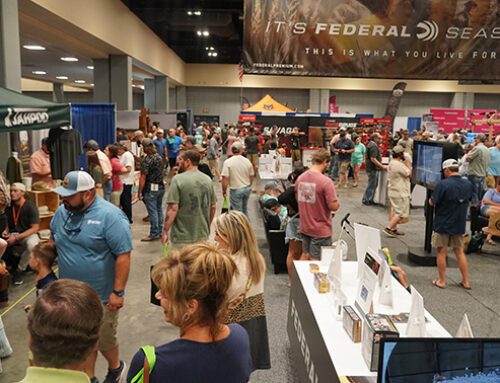
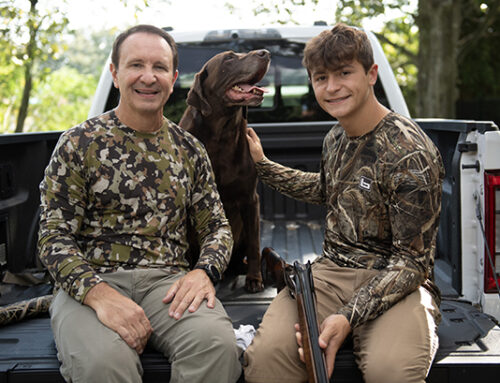
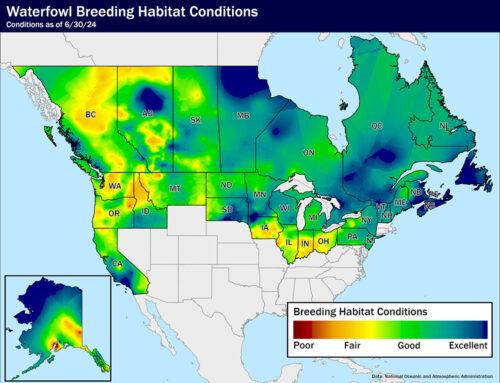
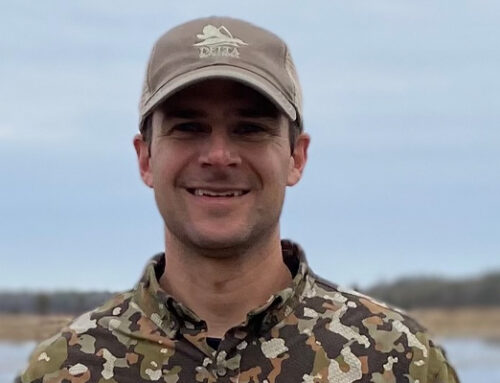
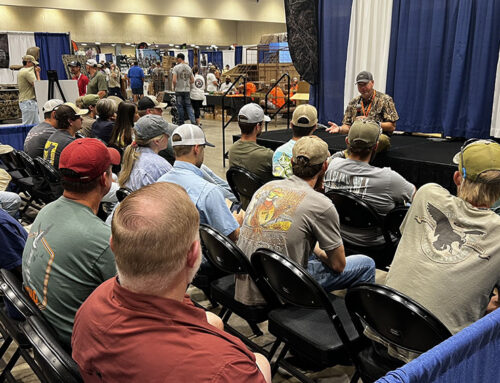
Leave A Comment